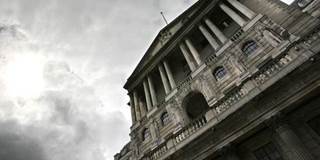 Shaun Curry/Stringer
Shaun Curry/Stringer
搁浅的经济的救援直升机
伯克利—对名义利率为零或接近于零的国家来说,财政刺激应该是无脑选择。只要政府借贷利率低于通货膨胀、劳动力增长和劳动生产率增长率之和,新增债务的分期偿还成本就是负数。与此同时,增加支出的好处是巨大的。大型工业化经济体或协调扩张的凯恩斯货币乘数据信在2左右——这意味着增加一美元财政支出可以提振约两美元真实GDP。
https://prosyn.org/YWjqdgXzh
To continue reading, register now. It’s free!
Register Now
Already have an account?
Log in



伯克利—对名义利率为零或接近于零的国家来说,财政刺激应该是无脑选择。只要政府借贷利率低于通货膨胀、劳动力增长和劳动生产率增长率之和,新增债务的分期偿还成本就是负数。与此同时,增加支出的好处是巨大的。大型工业化经济体或协调扩张的凯恩斯货币乘数据信在2左右——这意味着增加一美元财政支出可以提振约两美元真实GDP。